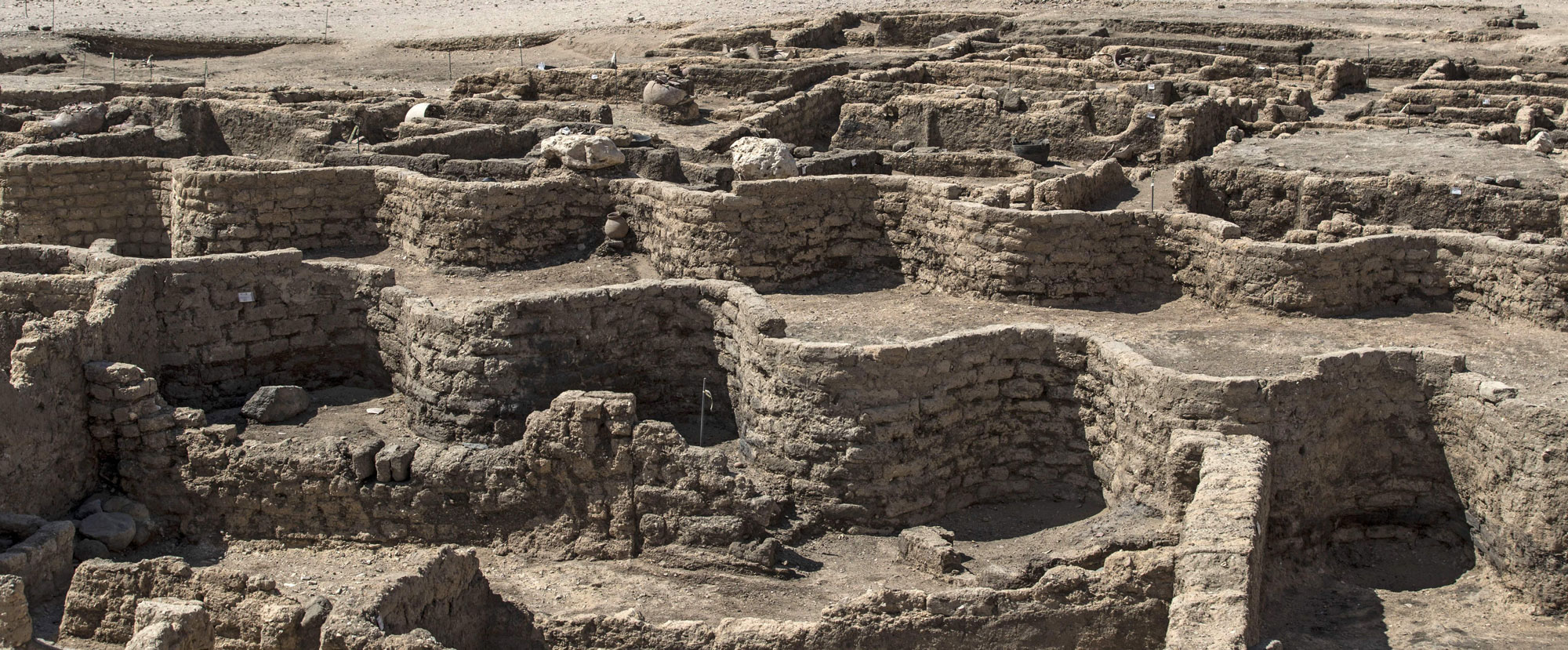ROME, ITALY—Science News reports that hunter-gatherers who lived in the central Balkan Peninsula some 11,500 years ago dined on wild cereals some 3,000 years before early farmers from southwest Asia arrived in the region with domesticated grains. Previous chemical analysis of the bones of Balkan hunter-gatherers indicates that they ate a lot of fish and other animal protein, but now Emanuela Cristiani of Sapienza University and her colleagues have detected microscopic traces of starch granules in the dental calculus of 60 hunter-gatherers who lived in the central Balkans. The same starches have been found on the grinding surfaces of 17 stone implements at one of the Balkan sites investigated. These hunter-gatherers “balanced their diet with plant foods and did so for millennia before the arrival of agriculture,” Cristiani explained. Read the original scholarly article about this research in eLife. To read about a study of the effects of changing diet on linguistic development, go to "You Say What You Eat."
Starches Detected in Paleolithic Diet of Southeastern Europe
News February 2, 2022
SHARE:
Recommended Articles
Digs & Discoveries March/April 2021
Lady Killer
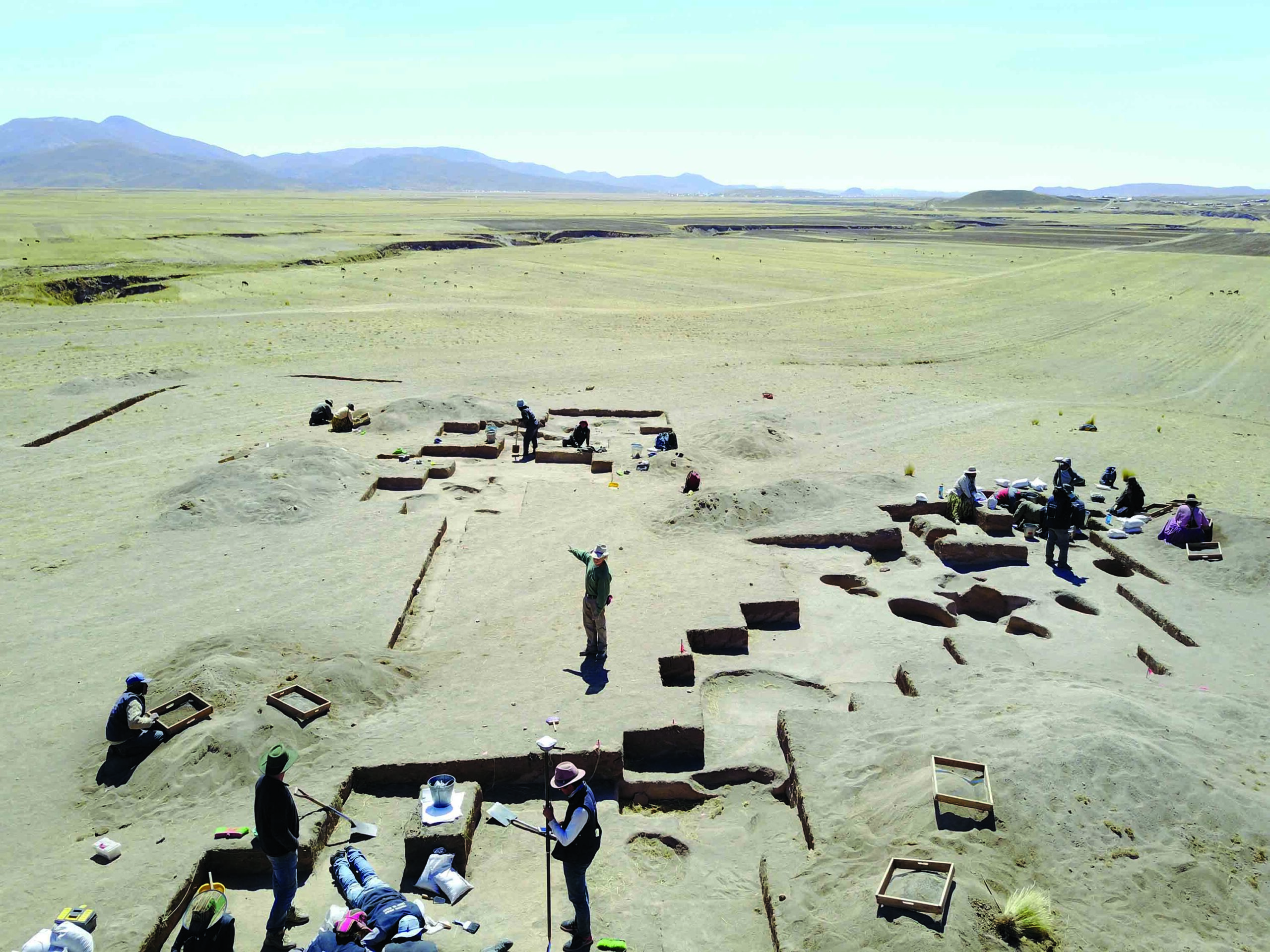
Courtesy Randy Haas
Digs & Discoveries May/June 2025
Lay of the Land

Courtesy Médard Thiry

AdobeStock/lucaar
Artifacts September/October 2024
Paleolithic Eyed Needles
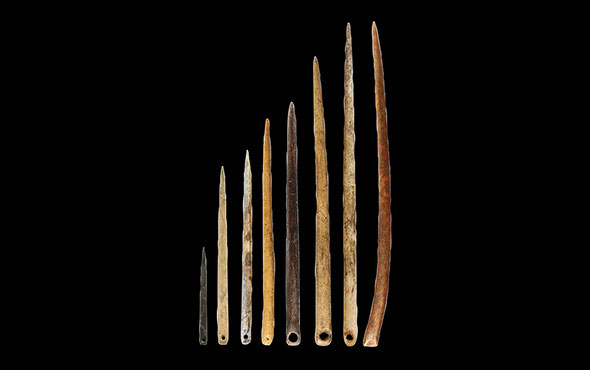
Gilligan et al., Sci. Adv. 10, eadp2887 (2024)
-
Features January/February 2022
At Face Value
Researchers are using new scientific methods to investigate how artists in Roman Egypt customized portraits for the dead
 (© The Trustees of the British Museum)
(© The Trustees of the British Museum) -
Letter from the Galapagos Islands January/February 2022
Transforming the Enchanted Isles
Archaeologists uncover the remote archipelago’s forgotten human history
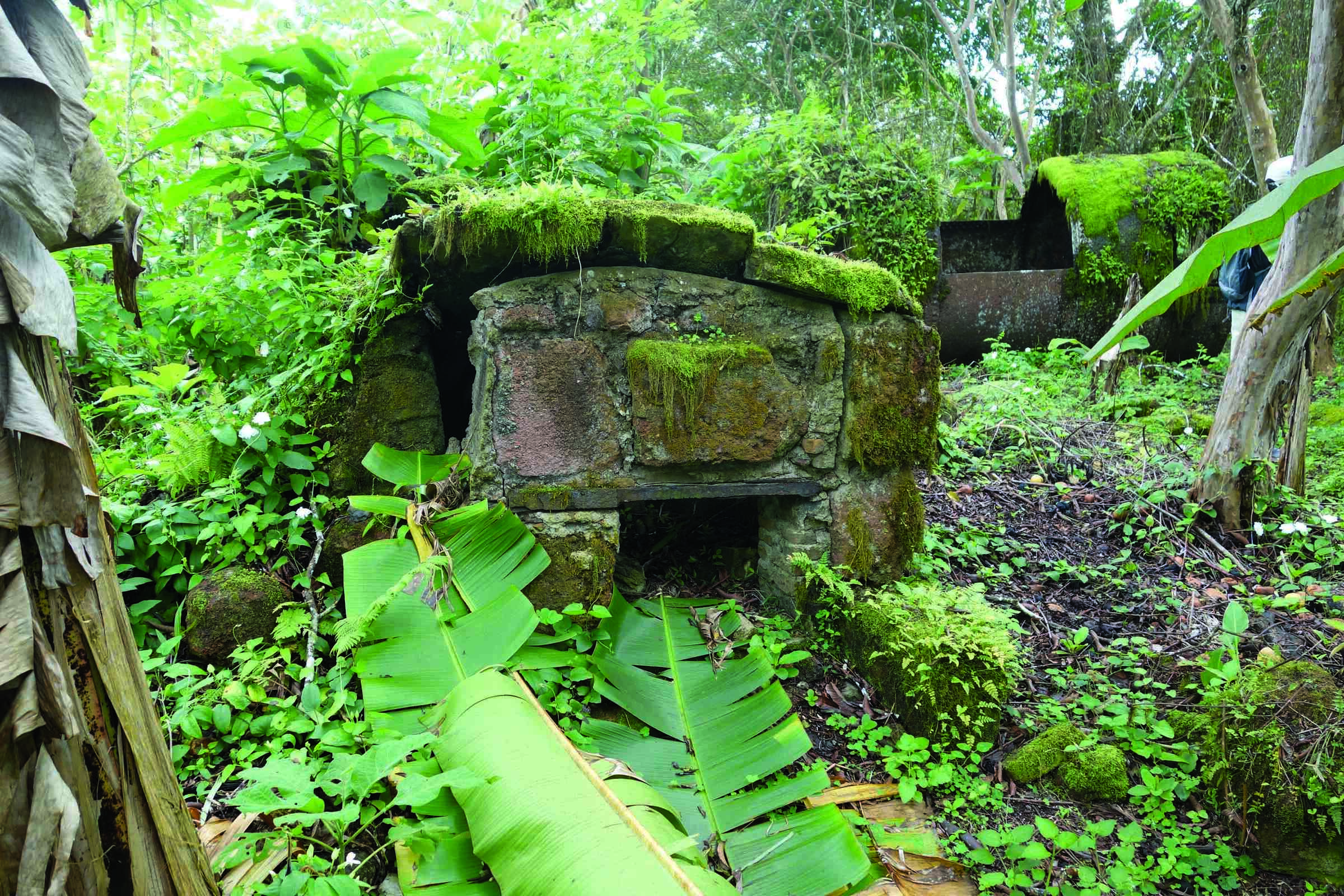 (Courtesy Historical Ecology of the Galapagos Islands Project)
(Courtesy Historical Ecology of the Galapagos Islands Project) -
Artifacts January/February 2022
Roman Key Handle
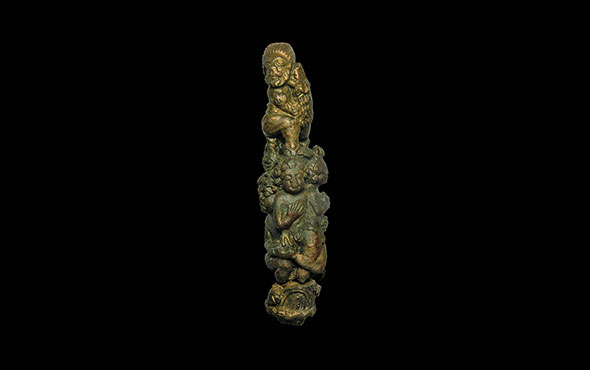 (University of Leicester Archaeological Services)
(University of Leicester Archaeological Services) -
Digs & Discoveries January/February 2022
The Roots of Violence
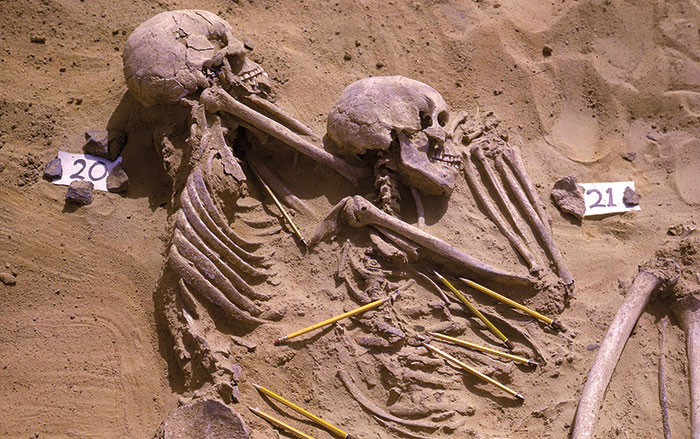 (Courtesy of the Wendorf Archives of the British Museum)
(Courtesy of the Wendorf Archives of the British Museum)


